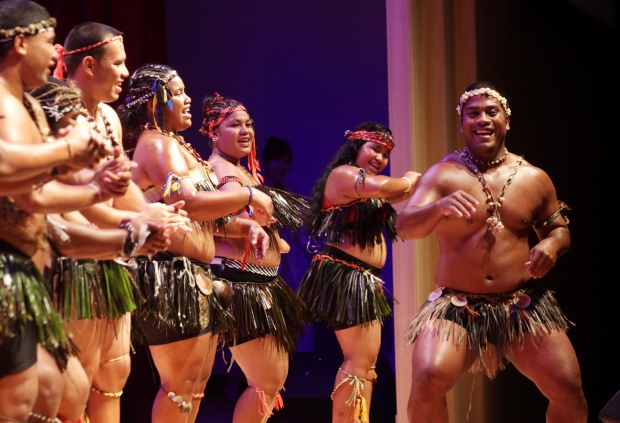The musical traditions of Nauru are similar to that
of other Micronesian traditions. However, many of these traditions have been
lost over the centuries, and few songs have been recorded. Radio Nauru has made
a push to try to record some of the music from the older generations, but even
the older generations don’t understand the context of some of these songs. Part
of this was due to the fact that the Germans banned much of the traditional music
and dance after they annexed the island in 1888. And to follow this, the forced
move of over a thousand Nauruans during the Japanese occupation contributed to
much of their cultural arts to be lost.
Nauruans are known for their rhythmic singing
performed at certain ceremonies and celebrations. I’ve tried to find more
information about their traditional reigen music, but all I’ve come across is
the same mentions on a handful of articles.
Dancing to traditional music is still regarded as
one of the more popular art forms. Like other Micronesian dance traditions,
their dances tend to be about their daily life. One dance was called the “dance
of the fish” to celebrate their catch (I’m guessing). Because Nauru is an
island, fishing is an integral part of their society. After the dance, they
would eat the fish. Other forms of dance that is popular throughout the Pacific
Islands, like hula dancing, is also performed. Dances can either be dances
female only, male only, or mixed.
As far as pop music goes, I’m going to venture to
say that they more than likely are influenced by and listen to Australian
music. For their own styles, it is a mix of their own traditional styles that
are popular throughout the South Pacific and Western styles like pop/rock. I
didn’t really find anything on Spotify, but there were a few clips on YouTube.
Their traditional-style pop music is typically sung in Nauruan, although I did
find one song in English. I didn’t really come across any rock bands, but I did
find one rap video from a Syrian-born Nauruan who calls himself MCAK (aka Ali Kharsa) that is sung in English. I
thought it was pretty good, even though his accent was still thick in places.
But kudos for rapping in a second language. That’s not easy to do.
Up next: the food

This is a lovely article, thanks for making it.
ReplyDeletethank you gave me so much more info for my project
ReplyDelete